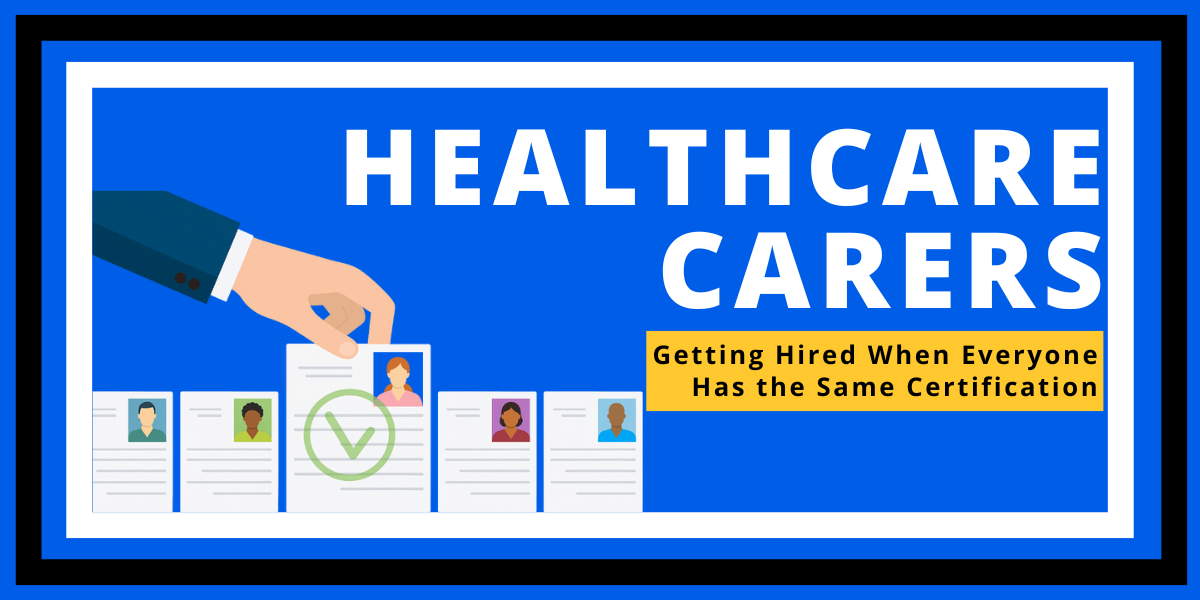Healthcare Careers: Getting Hired When Everyone Has the Same Certification


In healthcare hiring, your clinical certification gets you in the door, but it is not what sets you apart. When every applicant holds the same credentials, standing out takes more than qualifications.
That is the challenge many healthcare professionals face. After investing time and money into training, you are often competing with equally certified candidates for a limited number of roles.
Why Credentials Alone Won't Get You Hired
HR recruiters at major healthcare systems often receive hundreds of applications for a single clinical role. One large academic medical center reported over 20,000 applications for just 201 clinical research coordinator positions over 15 months.
When everyone meets the minimum requirements, recruiters spend just 15 to 20 seconds scanning each resume before deciding who moves forward. Your certification gets you noticed, but something else needs to make you stand out.
What Actually Makes the Difference
Getting the interview isn’t about qualifications at all. It comes down to how clearly you show your value. The candidates who get noticed are the ones who make it easy for recruiters to see why they’re the right fit.
1. Make Your Resume Speak to the Role
A strong healthcare resume is more than a list of credentials. It shows how you have made a difference.
- Mirror the language in the job post. If they mention “patient education” or “care coordination,” use those same phrases in your resume.
- Add numbers where you can. Saying you managed 12 patients per shift is more specific than saying you provided care.
- Emphasize results. It’s stronger to say you reduced post-discharge calls by 22 percent than to list tasks like creating handouts.
2. Reach Out to Someone Before You Apply
Referred candidates are 7x more likely to be hired than those applying through job boards. Even in clinical settings, who you know matters tremendously:
- Reach out to alumni from your program who work where you want to be. Many are open to sharing advice or pointing you toward open roles.
- Show up at local healthcare events or association meetings. Hiring managers often spot strong candidates in casual conversations.
- After a clinical rotation, send a thank-you note and stay in touch. That connection could turn into a job lead down the road.
3. Demonstrating Cultural Fit and Soft Skills
Technical skills get you considered, but interpersonal skills get you hired:
- Look into the organization’s values and be ready to explain how your approach to patient care fits their mission.
- Think of real examples that show how you work under pressure and communicate with a team, these stories often set candidates apart.
- Ask specific questions about the unit or department. It shows you are engaged in their environment and not just applying everywhere.
Practical Steps to Stand Out
Before You Apply:
- Customize your resume for each role. Generic applications often lead to missed opportunities.
- Learn what matters to the facility. If they emphasize patient-centered care, innovation, or evidence-based practice, reflect that in how you present your experience.
- Connect with current employees through LinkedIn or professional groups to get a clearer picture of what the organization values.
During the Interview Process:
- Bring a portfolio that includes patient education materials, project summaries, or quality improvement work that shows your impact.
- Share clear examples of how you have handled complex clinical situations and what your approach brought to the team.
- Follow up meaningfully after interviews with specific references to your conversation, not just a generic thank-you.
The Bottom Line
When every candidate has the same certification, what sets you apart is how clearly you communicate your impact, connect with people who can vouch for you, and show you belong on their team.
The strongest candidates treat certification as a starting point, not a selling point. They focus on showing why they’ll add real value – because in a sea of qualified resumes, recruiters are scanning for red flags. Your job is to leave no doubt that you’re the one worth calling back.
